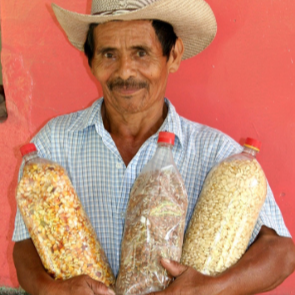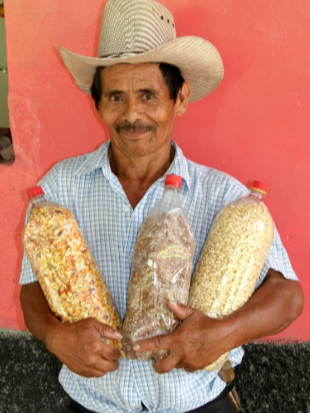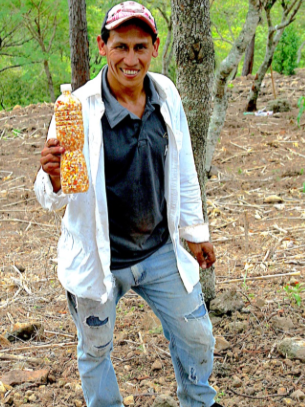
Food Security In Times of Changing Weather Patterns
This year EPIC supported 7 programs in Guatemala and Honduras that promoted “Resilient Agriculture”. This involves teaching a variety of agricultural practices that combine recent scientific work in agro-ecology with the wisdom of many of the participants’ Maya and Lenca indigenous ancestors.
Using native, heritage seeds and preserving biodiversity
Food security is enhanced by preserving and planting native, heritage seeds which are more resistant to adverse weather and pests. Using carefully selected heritage seeds harvests increase.


The farmers in the photos above are father and son. Because he understood the importance of preserving biodiversity, the father convinced his adult son to also save traditional native corn seeds which they will both plant next year. In addition, they have participated with other groups of farmers in Honduras to exchange native seeds.
Hedging against downpours and drought means planting some food crops that will still produce when there is very little rain, and other crops that will produce with copious rain. This insures food security for families.

